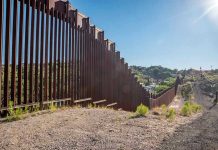
NASA’s sweeping ban on Chinese nationals—regardless of visa status—from all agency programs signals a dramatic escalation in America’s space rivalry with China, drawing sharp lines over national security and technological dominance.
Story Snapshot
- NASA barred all Chinese citizens, even with valid U.S. visas, from its facilities, networks, and space programs as of September 11, 2025.
- This unprecedented move follows internal lockouts and is justified as a response to intensifying U.S.-China competition in lunar exploration.
- Security concerns, particularly fears of espionage and technology theft, are cited as primary motivators, echoing conservative priorities.
- The ban impacts hundreds of scientists and raises questions about the future of international scientific collaboration and U.S. space leadership.
NASA’s Ban Targets Security Threats Amid Renewed Space Race
NASA formally announced an immediate ban on all Chinese nationals from agency programs, facilities, materials, and networks. This sweeping measure came after Chinese workers were locked out of NASA’s IT systems and excluded from meetings in early September. NASA officials framed the policy as a necessary response to the “second space race” with China, reflecting deep concerns about national security and the risk of technological espionage in a period of heightened geopolitical rivalry. The action signals a forceful assertion of American interests in space technology and exploration.
The ban’s reach extends to Chinese citizens holding valid U.S. visas, setting it apart from previous restrictions that relied on individual vetting. The agency’s leadership, including Acting Administrator Sean Duffy and press secretary Bethany Stevens, justified the decision by referencing urgent warnings from lawmakers and the recent push by both the U.S. and China to establish nuclear power infrastructure on the moon. By denying access to all Chinese nationals, NASA aims to guard against potential threats to sensitive space projects like the Artemis lunar program. Lawmakers such as Senator Ted Cruz have championed the move, emphasizing the necessity of protecting vital American technology and leadership in space.
Historical Context: From Wolf Amendment to Comprehensive Exclusion
U.S. restrictions on Chinese involvement in NASA projects are not new. The 2011 Wolf Amendment first blocked bilateral cooperation with China due to longstanding fears of espionage and technology transfer. However, the 2025 ban marks a significant escalation: it applies universally to all Chinese citizens, regardless of individual background checks or visa status. This policy shift reflects growing frustration with perceived loopholes and security risks, as well as intensifying competition as both nations race to establish a human presence on the moon. The ban is thus both a continuation and an intensification of efforts to safeguard American space assets.
Recent events have further heightened tensions. In the weeks leading up to the ban, both Washington and Beijing unveiled proposals for lunar nuclear power plants, fueling anxiety over potential territorial and technological dominance on the moon. Prior incidents of alleged cyber-espionage targeting U.S. space and defense systems have only reinforced the resolve among American policymakers to adopt a more comprehensive approach. The current administration’s decisive action sends a clear message: the safeguarding of U.S. innovation and security will not be compromised for the sake of international collaboration, especially with strategic competitors like China.
Stakeholders, Impacts, and Conservative Reactions
The ban’s most immediate effect is the abrupt exclusion of hundreds of Chinese scientists and engineers from NASA projects, disrupting ongoing research and joint ventures. U.S. research teams with Chinese collaborators face sudden setbacks, while the wider international scientific community must grapple with the implications for openness and cooperation. Supporters of the ban argue that strict measures are necessary to counter persistent threats and protect the technological edge crucial to national security. They view the action as a long-overdue correction to years of lax oversight that endangered American interests and potentially eroded constitutional principles tied to sovereignty and security.
NASA bans Chinese nationals from working on programs at facilities https://t.co/RtcyCqPP4P via @upi
— Frances Auger (Me / Myself / and I) (@fern_60) September 12, 2025
Critics, including some academic leaders and legal scholars, warn of a chilling effect on scientific progress and international goodwill. They note the shift from targeted vetting to blanket exclusion raises fairness and due process concerns, and could harm the U.S. by isolating its research community from global talent. Nonetheless, the majority of security experts and conservative lawmakers remain steadfast, viewing the ban as a prudent move in a high-stakes competition that demands vigilance against undue foreign influence. The policy also aligns with broader trends of decoupling from Chinese interests in other sensitive high-tech sectors, resonating with readers alarmed by previous failures to prioritize American values and constitutional protections.
Broader Consequences and the Path Forward
In the short term, NASA’s comprehensive ban delivers a clear message about the primacy of American security and leadership in space. The decision disrupts collaborative research and may prompt China to impose reciprocal measures, potentially escalating the technological and political rivalry. Over time, these developments could reinforce the global polarization of scientific communities and intensify scrutiny of foreign nationals in U.S. industries. While some worry about damage to international partnerships and scientific advancement, many Americans see the ban as a long-overdue stand to protect the nation’s vital interests. The coming months will reveal whether this approach successfully safeguards U.S. innovation or creates new challenges for America’s space ambitions.
Sources:
NASA bans Chinese nationals from working on programs at facilities
NASA blocks Chinese scientists from programs
NASA blocks Chinese citizens from participating in its projects









